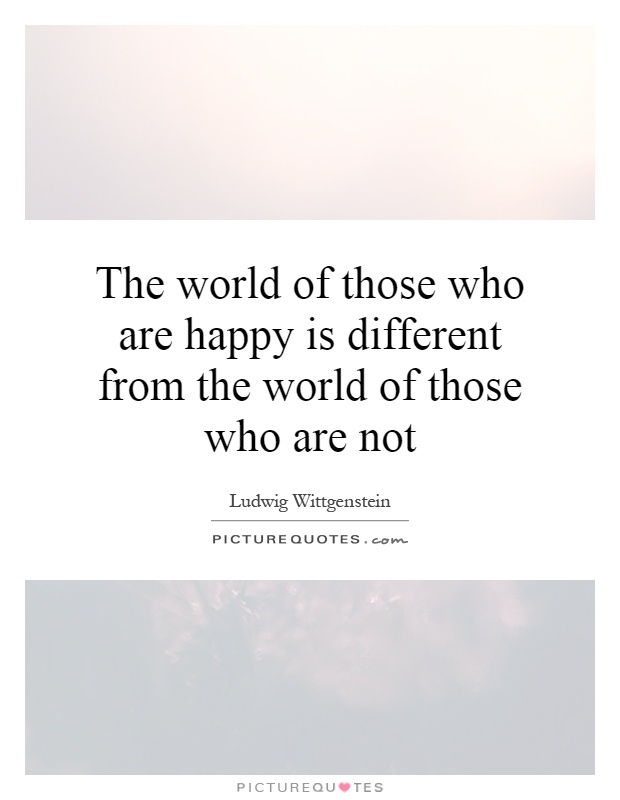The world of those who are happy is different from the world of those who are not

The world of those who are happy is different from the world of those who are not
Ludwig Wittgenstein, a renowned philosopher known for his work in logic, language, and the nature of reality, would likely have a unique perspective on the statement, "The world of those who are happy is different from the world of those who are not." Wittgenstein's philosophical investigations often delved into the complexities of language and how it shapes our understanding of the world around us. In this context, he might argue that the concept of happiness itself is a linguistic construct that influences our perception of reality.Wittgenstein believed that language is not simply a tool for communication, but a fundamental part of how we experience and interpret the world. In his later work, he explored the idea that language is a form of life, deeply intertwined with our thoughts, beliefs, and emotions. From this perspective, the statement about the world of the happy versus the unhappy takes on a new significance.
For those who are happy, Wittgenstein might suggest that their language and way of thinking reflect a positive outlook on life. Their words and actions are likely to be imbued with a sense of contentment, gratitude, and joy. In this sense, their world is shaped by their happiness, coloring their interactions with others and their perceptions of the world around them.
Conversely, for those who are not happy, Wittgenstein might argue that their language and thought patterns are influenced by their unhappiness. Their words may be tinged with negativity, pessimism, and despair, creating a different lens through which they view the world. This negative outlook can lead to a distorted perception of reality, where even positive experiences are filtered through a lens of discontent.












 Friendship Quotes
Friendship Quotes Love Quotes
Love Quotes Life Quotes
Life Quotes Funny Quotes
Funny Quotes Motivational Quotes
Motivational Quotes Inspirational Quotes
Inspirational Quotes